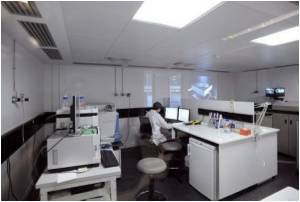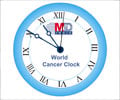An African-Asian conference on research in cancer called for a repository of cancer-based research in India.

According to the latest population-based cancer registry, cancer incidence for every 100,000 males and females in key cities across the country like Bangalore is 113/139, New Delhi has 124/121 and Mumbai 99/110.
"With Bangalore having the highest incidence of cancer cases in the country, there is an urgent need for superior cancer care for patients through futuristic technology to improve their quality of life," said Ajai Kumar said in a day long session on combating the dreaded disease.
Oncologists from Asia and Africa are holding brain-storming sessions on personalised medicine, organ and functional preservation in breast cancer, hematology and stem cell transplant and cardio thoracic oncology at the conference on 'From Bedside to Benchmark', organised by the association.
"One of the emerging challenges in oncology is the utilization of patient-specific genomic information to develop personalized and targeted therapeutic options based on molecular aberrations in the tumour," medical oncologist Prahlad Ram of the US-based Anderson Cancer Centre said in his presentation.
The second challenge facing cancer medicine is the identification of pharmacological options to overcome resistance and repurposing of approved drugs for cancer therapy.
Advertisement
When functioning optimally, the immune system destroys any aberrant cell which might evolve into a cancer. The dysfunction of the system against a strong causative factor culminates in cancer development.
Advertisement
Over the next two days, the conference will focus on predictive oncology, colo-rectal and liver cancer, radiation oncology, neuro-oncology, psycho oncology, gyneco-oncology, head and neck cancer, evolving comprehensive cancer, global perspectives in oncology, lung cancer, musculoskeletal oncology and uro oncology.
"There are about 30 million cancer survivors worldwide, which are expected to jump to 70 million by 2050. We aim to bring together oncologists to discuss preventive care and improved treatment, to advance the quality of life of cancer patients and survivors across the country."
The association of specialists in multi-disciplinary areas works as a platform to promote transitional research in oncology.
Source-IANS














